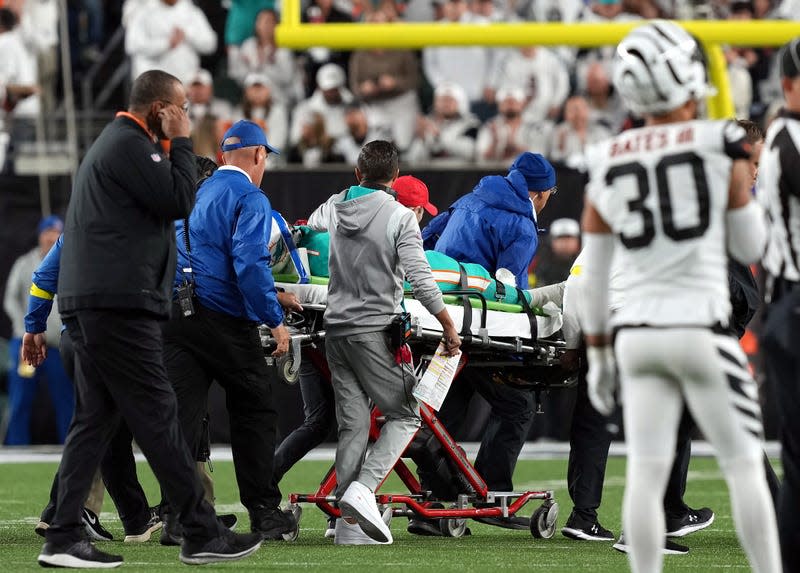QB Tua Tagovailoa Should Retire To Protect His Brain, Concussion Doctor Says

- Oops!Something went wrong.Please try again later.
- Oops!Something went wrong.Please try again later.
Bennet Omalu, the doctor famous for connecting the debilitating disease known as CTE to playing football has a message for Miami Dolphins’ QB Tua Tagovailoa: quit football, now.
Tagovailoa—an athlete famous enough that most fans and commentators just use his first name—is already ruled out of this Sunday’s game against the New York Jets after what looked like brutal head injuries in back-to-back games. But Omalu says Tua should forget about the next game on Oct. 23 against the Minnesota Vikings, and any other game after that. He told TMZ that his trained eye has convinced him it’s possible Tua has “severe, long-term permanent brain damage” after the devastating hits.
Read more
Aside from Halle Bailey, Here Are Other Black Disney Actors and Characters We Love
Move Over King Charles, Here Are More Black Men We Call Royalty [UPDATED]
“He seized! You saw him? He was seizing,” Omalu says, mimicking the position of Tua’s hands after the second injury last week. “If you love your life, you love your family, you love your kids if you have kids, it’s time to gallantly walk away. Go find something else to do.”
Omalu, to anyone’s knowledge, has never met nor examined Tua, who’s 24 and in the third year of his $30.3 million rookie contract with the ‘fins. He appears to be basing his opinion on having watched footage of the games, and, of course all he learned in the course of studying the brains of deceased football players.
Omalu is a neuropathologist and professor at the University of California, Davis. He’s best known for work he did earlier in is career. While working in the coroner’s office in Pittsburgh, he studied the brain of Mike Webster, the Pittsburgh Steelers’ Hall of Fame center who died in 2002. That research led to the connection between accumulated head trauma from playing football and long-term neurological disability. He was played by Will Smith in the 2015 movie Concussion.
The NFL would later be sued and reach a $1 billion settlement with former players over concussions, in addition to enacting rule changes intended to make the game safer and instituting its concussion protocol for players possibly injured during games.
Tua is the latest NFL player to restart controversy over concussions. He suffered what looked like a head injury after the back of his helmet slammed on the turf in the Dolphins’ Sept. 25 game against the Buffalo Bills. Obviously dizzy, he was helped off the field after shaking his head and stumbling around in an apparent daze. But the Dolphins’ coaches and medical staff let him come back into the game, saying later that he had suffered an injury to his back, not his head.
Just four days later, fans, ex-players and talking heads were stunned when the team allowed him to play again in a Thursday Night Football matchup against the Cincinnati Bengals—this, despite the league’s concussion protocol stipulating that players must pass a battery of tests and wait until they have visible signs of neurological impairment. Tua took a frightening hit in that game, landing on his head again and leaving his hands frozen in an awkward position, which neurologists have said is a telltale sign of a potentially serious head injury. He was briefly hospitalized but took the plane back to Miami with his team.

